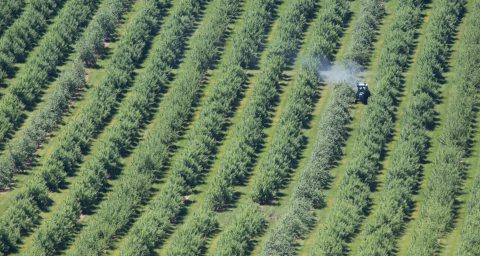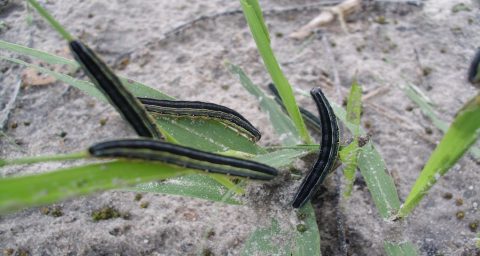
Pesticides: with or without?
They get a bad press, but certain compounds are key to a future with safe, sufficient and affordable food, says the ECPA’s Graeme Taylor.
Academics, policy makers, industrialists, farmers and end-users give their views on food security.

They get a bad press, but certain compounds are key to a future with safe, sufficient and affordable food, says the ECPA’s Graeme Taylor.

Head of Global Food Security (GFS) Riaz Bhunnoo outlines the programme’s plans and policies for the future.

As armyworms return to devastate crops in Africa, Lancaster University’s Professor Ken Wilson reports on renewed efforts to bring a sustainable solution.
The Global Food Security programme’s Sian Williams decided to cut all meat and animal products from her diet to see how difficult it would be to eat more sustainably.
Most of the world’s food is produced in temperate zones. The Global Food Security programme’s Evangelia Kougioumoutzi reports on the TempAg Network.
The Global Food Security programme’s Champion, Professor Tim Benton, reflects on leaving the role after five years in the post.
Chris Collins from the Soil Research Centre reviews the actions and intentions of an ongoing research programme.
Retracing our genetic path of plant domestication can help us produce newer, better varieties to enhance food security, says the Earlham Institute’s Peter Bickerton.
Blackouts and water shortages can severely harm a nation’s food security. Resource allocation tools can help policy makers improve energy access while minimising hunger, says the Stockholm Environment Institute’s Louise Karlberg.
How can we help people make better dietary choices for their health and the planet? The Global Food Security programme’s Sian Williams introduces a new report.
What technologies could sustainably replace pesticides, without compromising on yield or quality? The Global Food Security (GFS) programme’s David O’Gorman reviews a recent GFS workshop on the topic.